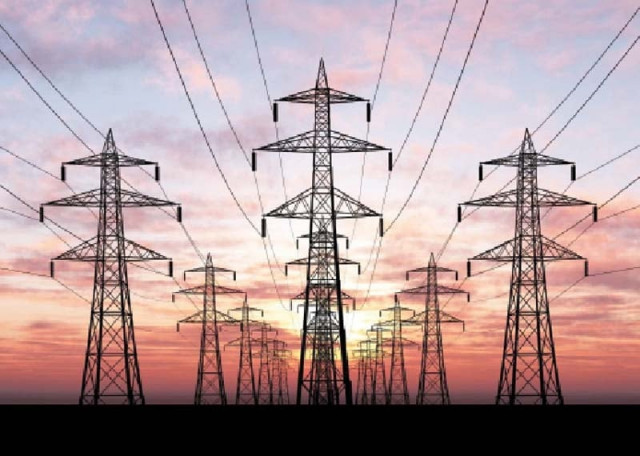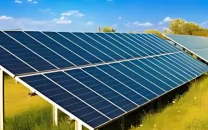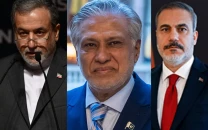High power tariff a Catch-22 for govt
Govt mulls ending free electricity to officials, agencies

Amid growing public and political backlash against unjustified hike in power tariffs, the government's new proposal to defer the increase in electricity bills of 201 to 400 units' monthly consumers has met with opposition from the International Monetary Fund (IMF).
Prime Minister Shehbaz Sharif had desired that the Rs7.12 per unit increase in electricity prices for residential consumers falling in the category of 201 to 400 units may be deferred for three months.
The premier had directed the Ministry of Energy and the Ministry of Finance to find a solution and get the IMF's nod. The sources said the PM had asked the ministries to adjust the financial impact of the decision against this fiscal year's Public Sector Development Programme (PSDP) budget allocation.
The government has already deferred the increase for up to 200 units for three months by slashing the PSDP by Rs50 billion. The PSDP had been proposed at Rs1.4 trillion in the budget but it has already been slashed to Rs1.1 trillion to create some fiscal space.
There was some panic in the official circles after the Jamaat-e-Islami (JI) managed to bring protesters in large numbers to the streets against recent electricity price hike and increase in tax burden of the salaried class.
The right-wing political party has staged a sit-in in Rawalpindithe sister city of Islamabadand its chief, Hafiz Naeemur Rehman, has threatened to march towards the capital city if the demands are not accepted by the government.
The sources said the government shared a proposal of temporarily lessening the burden on the middle-income group consumers with the IMF. But the IMF has pushed back against it and asked the government to refrain from giving any further temporary relief to the consumers, they added.
The IMF's resident representative, Ester Perez, did not respond to a request for comments.
About 2.8 million or nearly 10% of the total residential consumers fall in the category of 201 to 400 units. These consumers are paying even more than the average price of Rs33 per unit after the fresh increase is enforced from July.
The government increased the electricity prices for 201 to 300 units by Rs7.12 per unit to Rs34.26. There are 2.2 million consumers in this category.
Likewise, after Rs7.12 per unit increase, the new rates for 301 to 400 units' consumption are Rs39.15 per unit, excluding taxes and surcharges. There are about 591,000 consumers in this category.
The PM had already deferred the increase in prices for up to 200 units' consumers, which benefited 87% of the total residential consumers but only for three months. There are 28.8 million total residential consumers in Pakistan.
At least two senior government functionaries said on condition of anonymity that the IMF has pushed back against the proposal to defer the price hike for three months. Prime Minister Shehbaz Sharif had approved increasing the electricity prices up to Rs7.12 per unit or 51%.
The government officials said it was not a rationale proposal to defer the increase in electricity prices. They said this would reopen the IMF programme, as the energy sector targets related to circular debt reduction and annual base tariffs have already been set.
Due to wrong policies of the IMF, the World Bank and the successive governments, the electricity prices have become unaffordable and will cost on an average Rs70 per unit after the recent hike.
The IMF last year had also not approved Pakistan's request for recovering August's electricity bills over a period of six months. The Power Division at that time had proposed recovering the bills in three monthly installments and to compensate power distribution companies by taking loans from commercial banks.
The JI has now become the first political party in recent months to come out on the streets for the rights of the people. Hafiz Naeem urged the government to engage seriously with its negotiation committee and provide the necessary relief to the people, warning that all options, including a march to Islamabad D-Chowk, remain open.
The JI has placed eight major demands before the government, some of them can be implemented without jeopardizing the IMF deal.
The party's leadership has asked the government to cancel those contracts with the Independent Power Producers (IPPs) that were extended after their expiry periods.
It has also asked it to recover excess payments made to the IPPs. The party demands that where the agreements cannot be cancelled these should be renegotiated, including those with China.
The contracts with the local and foreign investors have been blamed for the current record electricity prices, although the government remains the largest producer and the single largest beneficiary of the capacity payments.
The Express News special transmission on the current electricity crisis will be aired today (Sunday) evening where experts have given some valuable recommendations to lower the prices.
The JI has also demanded that the forensic audit of the IPP should be carried out to determine their wrongdoings. It has also asked the government to withdraw an increase in electricity prices, withdraw increase in taxes on salaried class, end new income tax rate for exporters and withdraw fixed tax rates for the traders.
Withdrawal of facilities
The government is considering ending the provision of free electricity to government officials and agencies, according to sources from the power division. The federal government, under severe public and political pressure, has decided in principle to work on an emergency plan in the Ministry of Energy.
The plan proposes terminating the free electricity facility for the employees of all government and semi-government institutions. This includes bureaucrats, judges, and parliamentarians.
The emergency plan also includes a second phase, which considers ending the provision of free petrol.
Only industries and businesses will receive legitimate facilities. Sources indicate that there is also a proposal to reduce the Maximum Demand Indicator (MDI) charges in factories.
Furthermore, the performance of the National Electric Power Regulatory Authority (NEPRA) and the Oil and Gas Regulatory Authority (OGRA) will be scrutinised as part of this plan.
WITH INPUT FROM IRSHAD ANSARI IN ISLAMABAD



















COMMENTS
Comments are moderated and generally will be posted if they are on-topic and not abusive.
For more information, please see our Comments FAQ